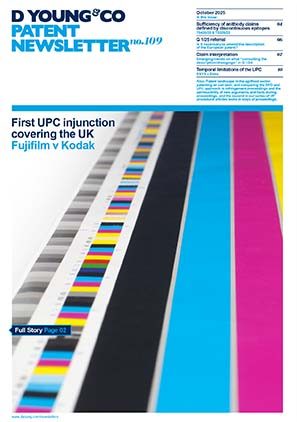Global patenting pitfalls: beware national restrictions concerning where to file first
In the context of obtaining patent protection for a given invention, in normal circumstances the intended owner of this patent protection has a degree of flexibility in deciding which geographical territory this protection should be first pursued in.
There are some instances, however, whereby depending on how the invention was devised, the intended owner of any resultant patent(s) may be forced into pursuing patent protection in a different particular first territory, which may not be a territory which the owner necessarily had a commercial interest in pursuing otherwise.
A good example of this is in the context of Greek legislation, which requires that patent applications having a Greek national as an inventor must be applied for in/via Greece before any other countries (Law No. 4325/1963 on the Inventions Concerning the National Defence, Art. 1 and 2). Notionally, this requirement would appear to come into play, regardless of the subject matter of the invention. This is in contrast to many other territories having similar provisions which are only applicable for certain military-adjacent or national security related inventions.
Furthermore, this first filing requirement for Greece applies irrespective of where the inventor made the invention, and irrespective of the location or nationality of the applicant itself.
Failure to comply with this filing restriction may result in criminal sanctions, such that complying with these requirements is of paramount importance.
The nationality of all inventors should therefore be an essential check when preparing a patent application for first submission, to minimise the likelihood of contravening legislation.
Practical considerations
Other territories around the world, such as the US, China and France, employ provisions which can have an effect on where patent protection for a given invention must be first pursued, geographically speaking.
Some of these territories offer the ability to obtain a licence or authorisation allowing would-be patent owners to file patent applications abroad, without needing to first apply for patent protection in one of these territories. For example, in the US the US Patent and Trademark Office (USPTO) can provide you with an expedited foreign filing licence in a day or so, upon request, without needing to expressly apply for a US patent application first.
Returning to our example of Greece, the Greek patent office does not currently offer this option. A patent application with a Greek inventor needs to be filed at/via the Greek national patent office to obtain the equivalent authorisation.
This can be done in a number of ways:
- File a Greek national patent application. This is done by a qualified Greek representative who would also handle the prosecution of the application. Further overseas patent applications can then be made, claiming priority from the Greek national patent application, once the Greek patent office has completed its initial checks.
- File a European patent application via the Greek national patent office, in contrast to a normal central filing at the European Patent Office (EPO), noting a European patent application can also be filed via a number of the national offices of contracting states of the European Patent Convention. The Greek patent office will then perform its checks with respect to national security and, if successful, forward the application to the EPO. This option also involves the services of a qualified Greek representative to submit the initial European patent application via the national Greek patent office, but representation of the European patent application can be transferred to a different representative, if desired later on.
- File an international Patent Cooperation Treaty (PCT) application via the Greek national patent office – in a similar way to the EPO option, by having the international application filed by a qualified Greek representative at the Greek patent office.
A cost-effective option for navigating these provisions is for a European patent application to be filed via Greece, but without paying the official filing fee. The official filing fee is not required to obtain a filing date for the purposes of claiming priority, and so the European patent application can then be allowed to lapse without paying the filing fee. The applicant can then follow their normal filing strategy, with subsequent filings claiming priority to this lapsed European application, assuming no national security issues are identified by the Greek patent office in respect of the initially submitted European patent application.
National filing requirements of other territories
A number of other territories around the world impose restrictions on filing overseas patent applications where applications are filed by nationals or residents of the relevant territory, or applications that are made in the relevant territory. A summary of some of these known restrictions can be found on the WIPO website: dycip.com/wipo-nat-sec. Care therefore needs to be given, to ensure that a given patent filing process relating to any invention does not fall foul of any of these national restrictions.
Guidance from a locally qualified representative is encouraged, to the extent that there are any doubts as to the applicability of any of these national restrictions to a given invention and its related patent process.
Useful link
WIPO international applications and national security considerations: dycip.com/wipo-nat-sec.
